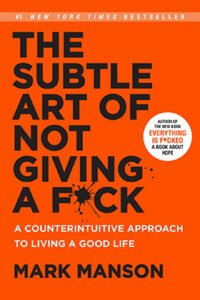
5 Ways To Have a Better Lifestyle
1. Embrace Lifelong Learning
2. Set and Achieve Personal Goals
Setting and achieving personal goals is a transformative practice that propels individuals toward self-discovery, growth, and fulfillment. The process of goal-setting involves identifying specific objectives that align with one's values, aspirations, and overall life vision. These goals act as guiding beacons, providing direction and purpose.
The act of setting personal goals goes beyond mere wishful thinking; it involves thoughtful planning and a commitment to take actionable steps. Whether the goals pertain to career advancement, health and fitness, relationships, or personal development, they serve as milestones in the journey toward a more meaningful and purposeful life.
Achieving personal goals requires dedication, perseverance, and a willingness to overcome obstacles. It involves breaking down larger objectives into manageable tasks and celebrating incremental successes along the way. This incremental progress not only builds confidence but also fuels the motivation to persist in the face of challenges.
The sense of accomplishment derived from achieving personal goals contributes significantly to one's overall well-being. It instills a sense of purpose, boosts self-esteem, and fosters a positive mindset. Additionally, the process of setting and achieving goals encourages continuous self-improvement, as individuals learn more about their capabilities and potential throughout the journey.
Ultimately, embracing the practice of setting and achieving personal goals empowers individuals to create the life they envision and embrace the fulfilling sense of accomplishment that accompanies their realization.
3. Practice Financial Wellness
Practicing financial wellness is a crucial aspect of leading a secure and balanced life. It involves making informed and mindful decisions about money that align with your long-term financial goals. This holistic approach to financial health goes beyond budgeting and savings; it encompasses strategies for managing debt, investing wisely, and planning for the future.
Financial wellness begins with a clear understanding of your financial situation. It involves creating a realistic budget, tracking expenses, and identifying areas for potential savings. By establishing an emergency fund, individuals can navigate unexpected expenses without compromising their financial stability.
Strategic debt management is another key component of financial wellness. Prioritizing high-interest debts and developing a repayment plan can alleviate financial stress and pave the way for long-term financial success.
Investing for the future is an integral part of financial wellness. Whether through retirement accounts, diversified portfolios, or other investment vehicles, growing wealth over time requires a thoughtful and informed approach.
Overall, practicing financial wellness empowers individuals to take control of their financial destinies, providing a sense of security and freedom. It enables them to make intentional choices that align with their values and long-term aspirations, fostering a path to financial independence and overall well-being.
4. Cultivate a Positive Mindset
Cultivating a positive mindset is a transformative practice that influences every aspect of life. It involves fostering optimistic thoughts, embracing challenges as opportunities for growth, and maintaining a hopeful outlook even in the face of adversity.
A positive mindset shapes one's perception of the world and contributes to mental and emotional well-being. By focusing on the good in various situations, individuals can reduce stress, enhance resilience, and improve overall happiness. Positive thinking is a powerful tool that helps build self-confidence and promotes a can-do attitude, leading to increased motivation and productivity.
This mindset is particularly valuable in navigating life's inevitable challenges. Instead of viewing setbacks as insurmountable obstacles, those with a positive mindset see them as temporary setbacks and opportunities to learn. This adaptive approach not only aids in problem-solving but also facilitates personal development and continuous learning.
Cultivating a positive mindset is an ongoing practice that involves self-awareness and intentional choices. By incorporating affirmations, gratitude practices, and mindfulness into daily life, individuals can foster a positive outlook that enhances their overall quality of life. This mindset becomes a guiding force, shaping attitudes, behaviors, and ultimately, the path to a more fulfilling and joyful existence.
5. Foster Work-Life Balance
Fostering work-life balance is crucial for maintaining overall well-being and achieving sustained success in both personal and professional realms. Striking a harmonious equilibrium between career demands and personal life not only enhances mental and physical health but also promotes greater job satisfaction and productivity.
Work-life balance involves setting clear boundaries between work and personal time, recognizing the importance of relaxation and rejuvenation. This balance enables individuals to recharge, preventing burnout and fostering longevity in their careers.
Effective time management is a key component of achieving work-life balance. Prioritizing tasks, setting realistic goals, and learning to delegate are essential skills in creating a manageable workload. Establishing regular breaks and dedicating time to hobbies, family, and self-care contribute to a more fulfilling and enriched life.
Organizations that prioritize work-life balance often witness higher employee morale, engagement, and retention. Flexible work arrangements, supportive policies, and a culture that values the well-being of its employees contribute to a healthier and more positive work environment.
In conclusion, fostering work-life balance is a holistic approach to living a fulfilling and sustainable life. By aligning professional responsibilities with personal priorities, individuals can lead more meaningful lives, experience increased happiness, and build lasting success in both their careers and personal relationships.
Recommended Reading:
Below are three books on the topic of this post, which I highly recommend for your reading. As an Amazon Associate I will earn from qualifying purchases you made from this Post.


